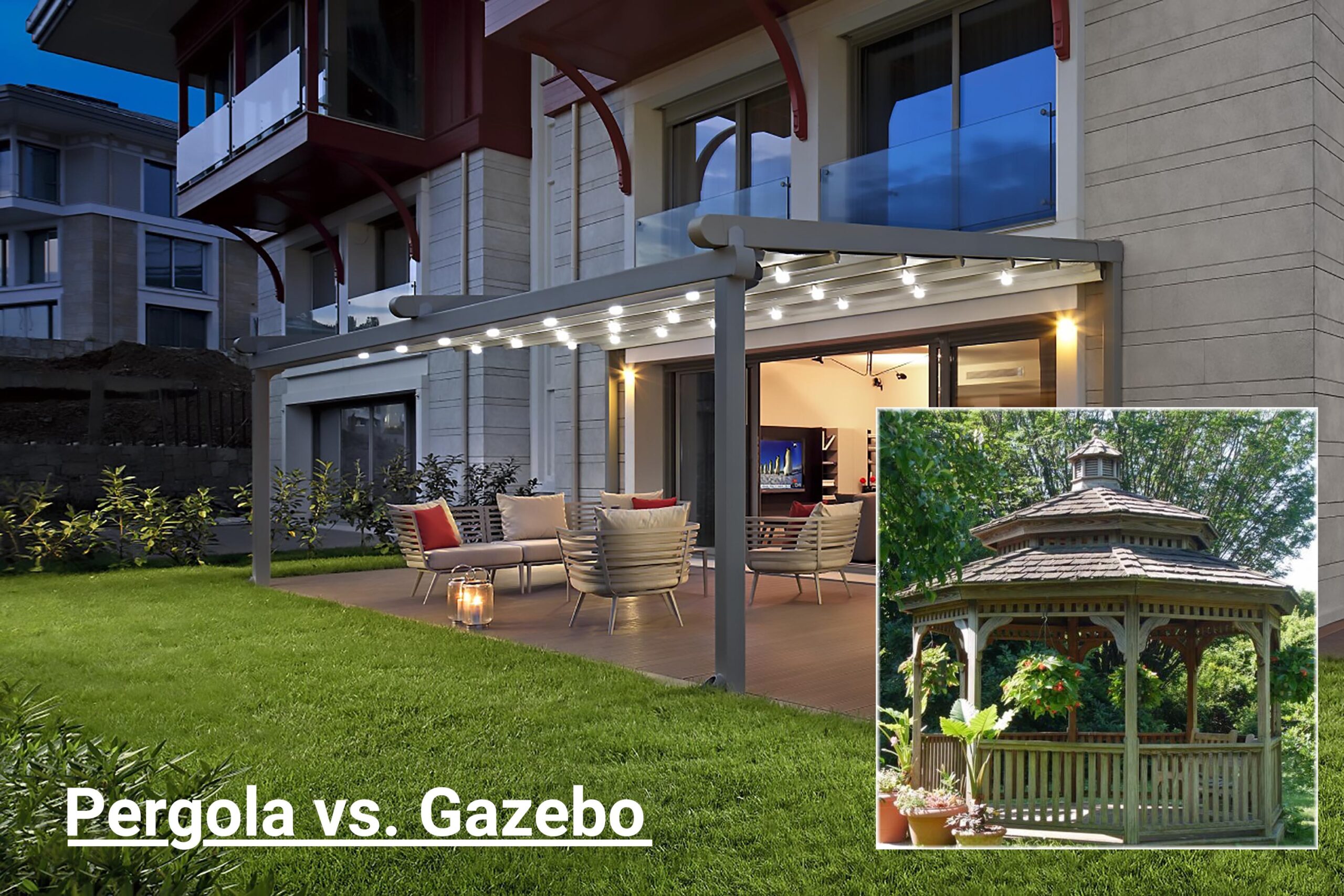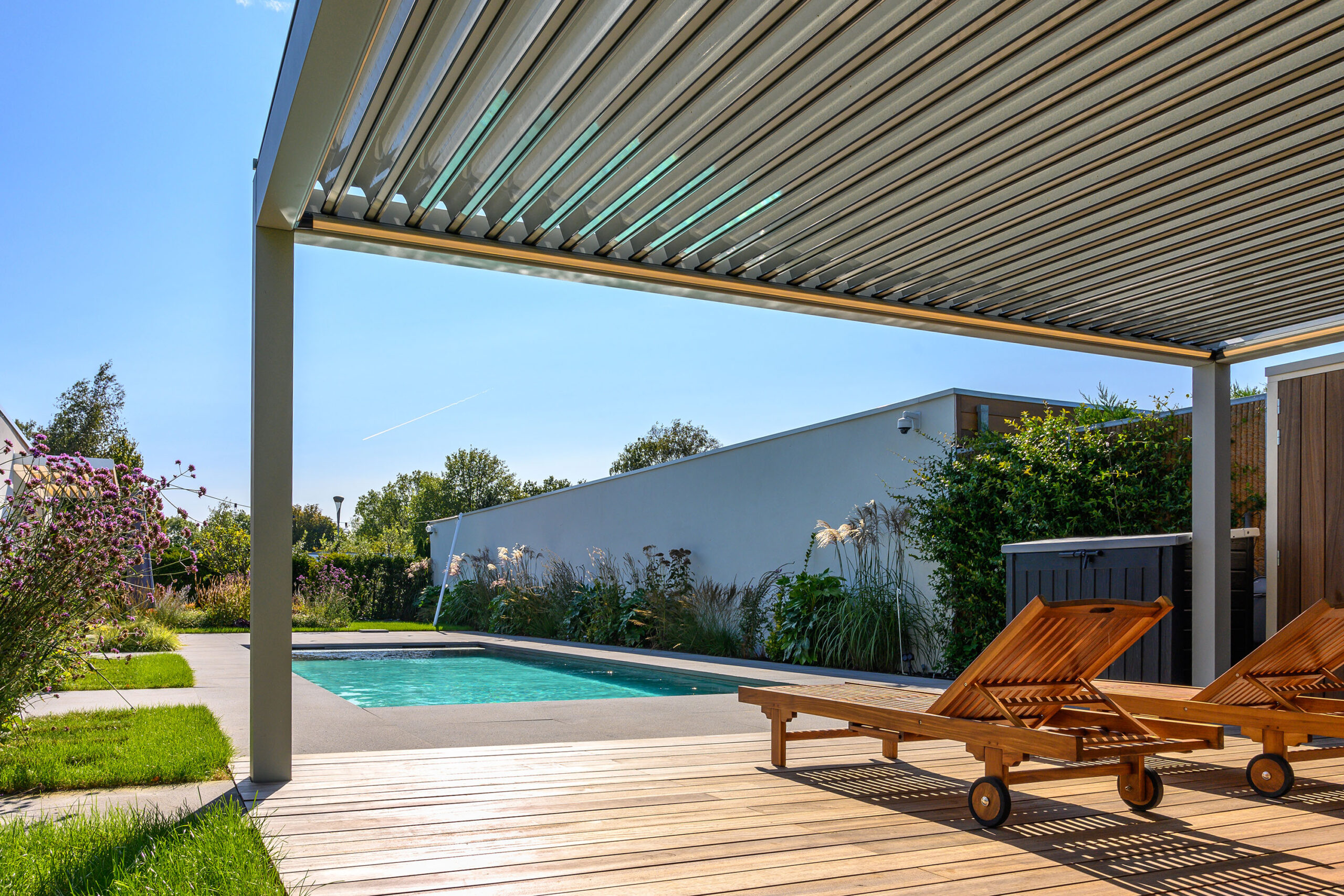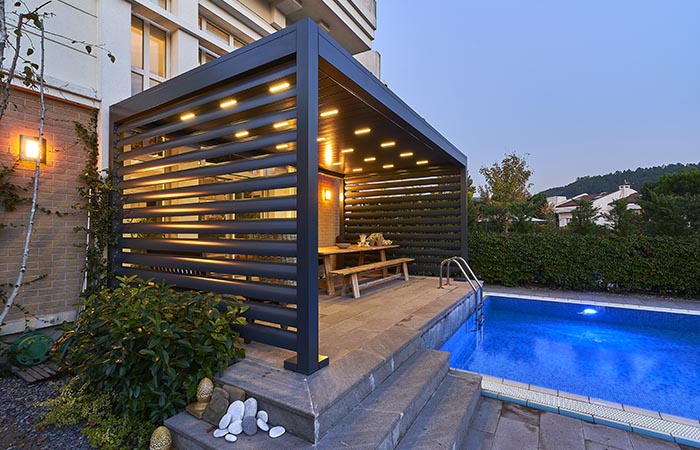Pergola vs. Gazebo. What’s The Difference?
Aluminum pergolas and gazebos are both popular outdoor structures that offer shade, shelter, and an aesthetically pleasing addition to any backyard or outdoor space. However, they differ in several key ways, from their construction materials to their design and functionality.
Materials and Construction: One of the most significant differences between an enclosed aluminum pergola and a gazebo is the materials used in their construction. Enclosed aluminum pergolas are primarily made of aluminum, a lightweight and durable material that is resistant to rust and corrosion. Gazebos, on the other hand, can be constructed from various materials, including wood, vinyl, or metal, depending on the homeowner’s preference. This distinction in materials can affect the maintenance requirements and longevity of the structures.
Design and Aesthetics: Gazebos typically have a more traditional and decorative design, often featuring intricate details and a roof that may be shingled or covered in other materials like fabric or thatch. In contrast, enclosed aluminum pergolas have a sleek and modern appearance, characterized by clean lines and a minimalist design. This makes aluminum pergolas an excellent choice for those who prefer a contemporary and uncluttered look in their outdoor space.
Functionality: The primary function of a gazebo is to provide a shaded area with an open-air feel. Gazebos are often used as gathering spaces for relaxation, outdoor dining, or as a focal point for garden settings. Enclosed aluminum pergolas, on the other hand, offer more versatility. They can be equipped with retractable shades, screens, or even glass walls, allowing homeowners to create an enclosed outdoor room that offers protection from insects, sun, wind, and rain. This added functionality makes aluminum pergolas suitable for a wider range of activities throughout the year.
Customization and Flexibility: Enclosed aluminum pergolas are highly customizable, allowing homeowners to choose various design options, including the size, color, and types of accessories like lighting and heating elements. Gazebos also offer some customization options but may be more limited due to their traditional design. Aluminum pergolas can be tailored to fit specific aesthetic preferences and functional needs, making them a flexible choice for different outdoor spaces.
Cost and Maintenance: Gazebos can vary widely in price depending on the materials used and the complexity of the design. Wood gazebos, for instance, tend to be more expensive and require regular maintenance such as staining or painting. Enclosed aluminum pergolas are often more cost-effective in the long run due to their lower maintenance requirements. Aluminum is resistant to rot, pests, and rust, which reduces the need for frequent upkeep.
In summary, aluminum pergolas and gazebos offer distinct advantages and suit different tastes and outdoor requirements. While gazebos excel in traditional aesthetics and open-air shelter, enclosed aluminum pergolas offer modern design options, added functionality, and reduced maintenance. The choice between the two ultimately depends on individual preferences, budget, and the desired use of the outdoor structure.
For more information on our aluminum pergolas, check out: Aluminum Pergolas




